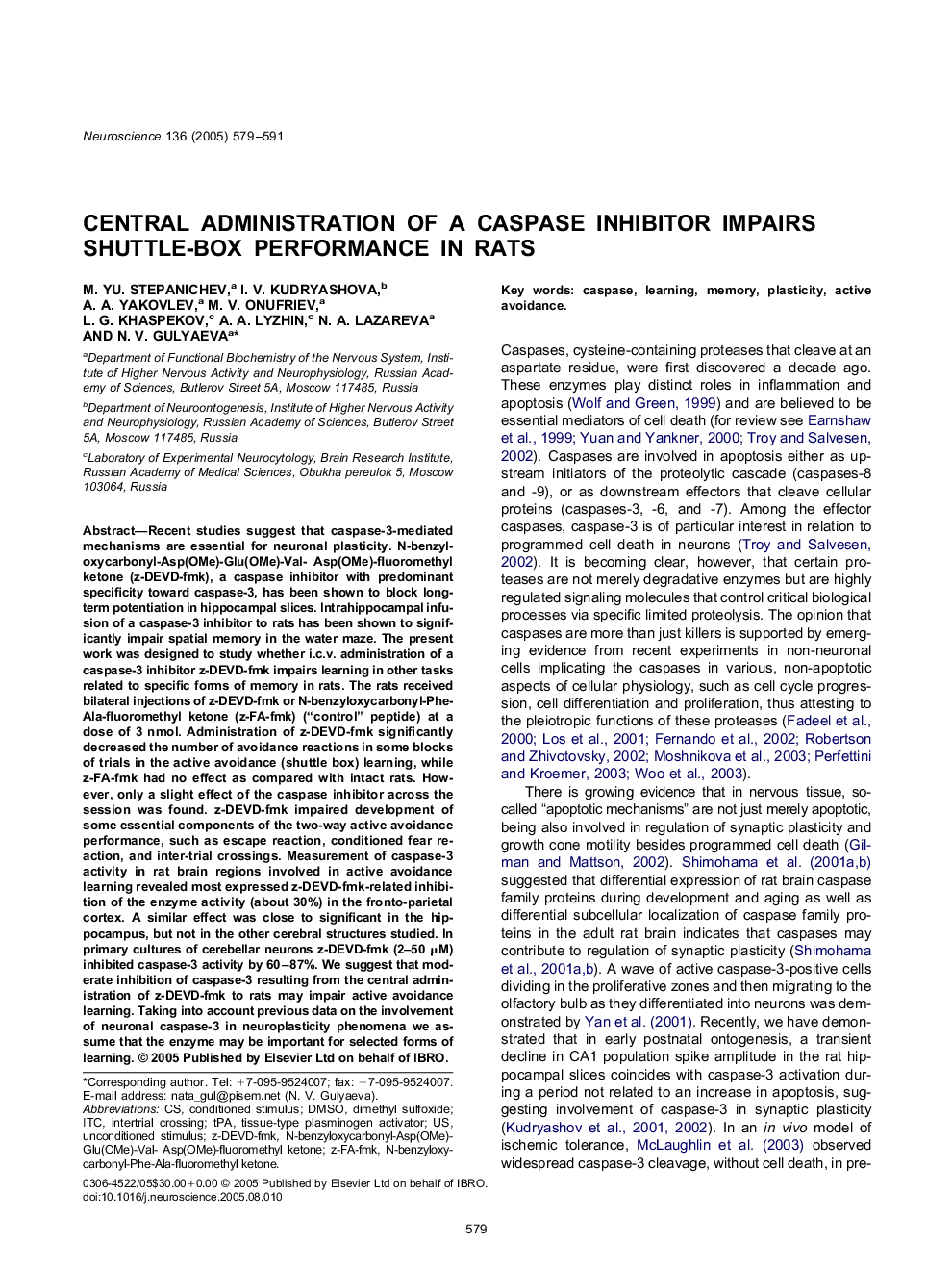| Article ID | Journal | Published Year | Pages | File Type |
|---|---|---|---|---|
| 9425399 | Neuroscience | 2005 | 13 Pages |
Abstract
Recent studies suggest that caspase-3-mediated mechanisms are essential for neuronal plasticity. N-benzyloxycarbonyl-Asp(OMe)-Glu(OMe)-Val- Asp(OMe)-fluoromethyl ketone (z-DEVD-fmk), a caspase inhibitor with predominant specificity toward caspase-3, has been shown to block long-term potentiation in hippocampal slices. Intrahippocampal infusion of a caspase-3 inhibitor to rats has been shown to significantly impair spatial memory in the water maze. The present work was designed to study whether i.c.v. administration of a caspase-3 inhibitor z-DEVD-fmk impairs learning in other tasks related to specific forms of memory in rats. The rats received bilateral injections of z-DEVD-fmk or N-benzyloxycarbonyl-Phe-Ala-fluoromethyl ketone (z-FA-fmk) (“control” peptide) at a dose of 3nmol. Administration of z-DEVD-fmk significantly decreased the number of avoidance reactions in some blocks of trials in the active avoidance (shuttle box) learning, while z-FA-fmk had no effect as compared with intact rats. However, only a slight effect of the caspase inhibitor across the session was found. z-DEVD-fmk impaired development of some essential components of the two-way active avoidance performance, such as escape reaction, conditioned fear reaction, and inter-trial crossings. Measurement of caspase-3 activity in rat brain regions involved in active avoidance learning revealed most expressed z-DEVD-fmk-related inhibition of the enzyme activity (about 30%) in the fronto-parietal cortex. A similar effect was close to significant in the hippocampus, but not in the other cerebral structures studied. In primary cultures of cerebellar neurons z-DEVD-fmk (2-50μM) inhibited caspase-3 activity by 60-87%. We suggest that moderate inhibition of caspase-3 resulting from the central administration of z-DEVD-fmk to rats may impair active avoidance learning. Taking into account previous data on the involvement of neuronal caspase-3 in neuroplasticity phenomena we assume that the enzyme may be important for selected forms of learning.
Keywords
Related Topics
Life Sciences
Neuroscience
Neuroscience (General)
Authors
M. Yu. Stepanichev, I.V. Kudryashova, A.A. Yakovlev, M.V. Onufriev, L.G. Khaspekov, A.A. Lyzhin, N.A. Lazareva, N.V. Gulyaeva,
